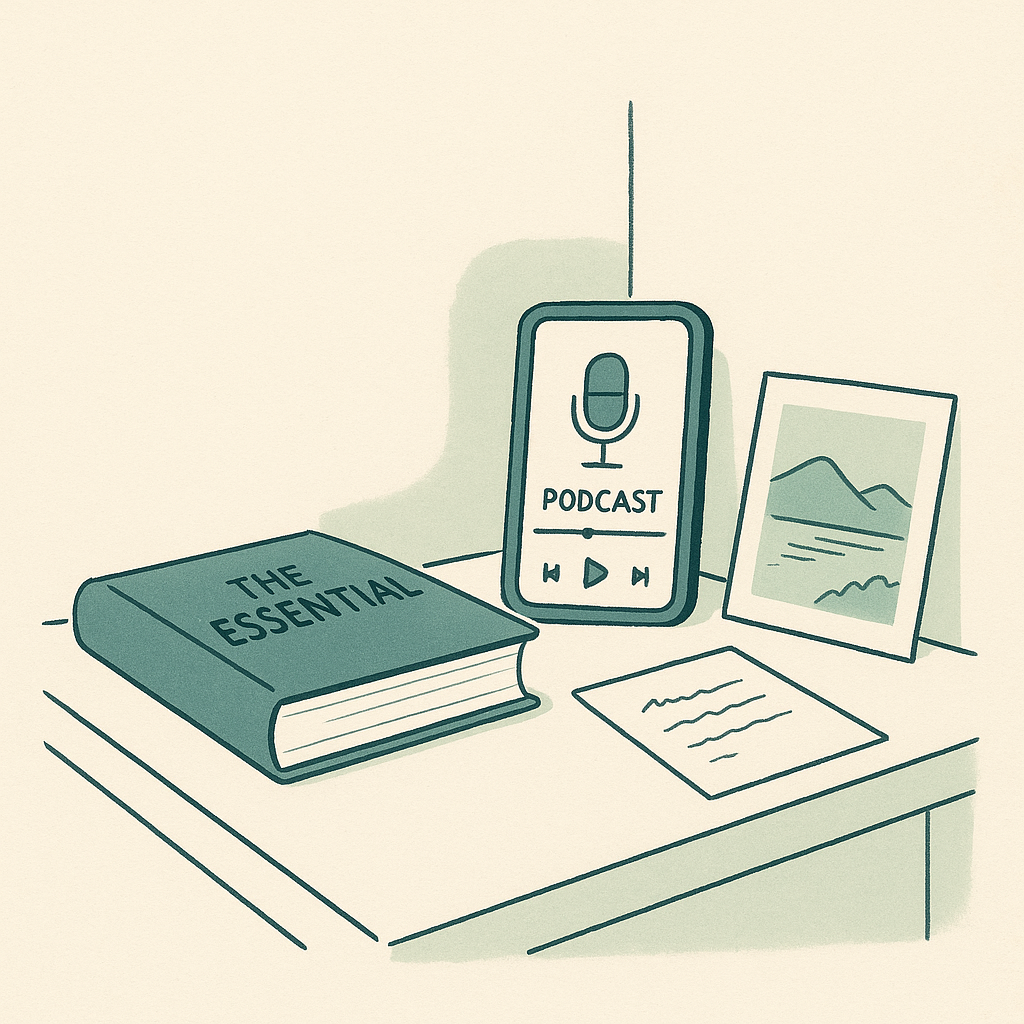The Fluency Fix
Quick, actionable episodes on how to build a sustainable language practice — without the burnout, without the overwhelm, without forcing yourself into someone else's system.
Most language learning advice treats fluency like a race: study harder, memorize faster, drill more. But real fluency doesn't come from grinding through flashcards or forcing rigid routines into your life.
It comes from building a practice that adapts to you — rooted in meaning, culture, and the life you're actually living.
The Fluency Fix is your guide to learning any language in a way that's sustainable, human, and voice-first. Each episode tackles a specific challenge, question, or method — giving you tools you can use right away.
Whether you're learning English or exploring another language, this podcast will help you rethink how fluency works — and how to build it on your own terms.
Recent Episodes
-

Duolingo: Does It Really Make You Fluent?
Gamified learning works because it lowers the emotional wall. It tells your brain: “This is safe. This is fun.” But eventually, fluency asks for more than fun — it asks for presence.
-

Input Without Overload
When you stop flooding your mind, you start hearing the subtle sounds again — the way a phrase bends, the way tone carries emotion. That’s where language becomes music.
-

The 10-Minute Window
When people talk about fluency, they talk about speed, grammar, and confidence. But what I’ve learned is this: Fluency is built in small, private moments of attention — the kind no one else sees.
-

The "Think It First" Week
Fluency doesn’t begin when you open your mouth. It begins when you hear yourself thinking differently.
How To Listen
The Fluency Fix is available on all major podcast platforms:
[Apple Podcasts] [Spotify] [Google Podcasts] [YouTube] [RSS Feed]
New episodes release weekly.
How to Use This Podcast:
Listen during your commute, workout, or morning coffee — episodes are 5-15 minutes in length, designed to fit into your life.
Pair episodes with worksheets — many episodes have companion worksheets available in the Worksheet Library.
Take notes and reflect — at the end of each episode, ask yourself: "What's one thing I can try this week?"
This podcast works best when you engage actively, not passively. Listen, reflect, and experiment.
Have a question or topic you'd like me to cover? Get in touch.
